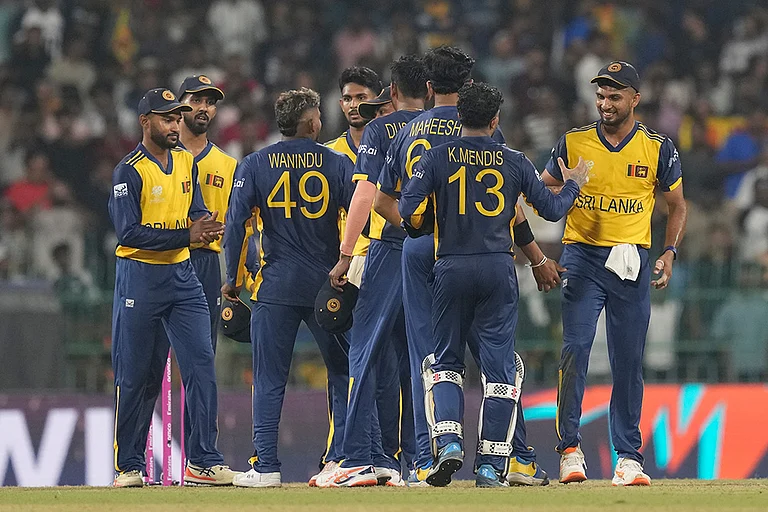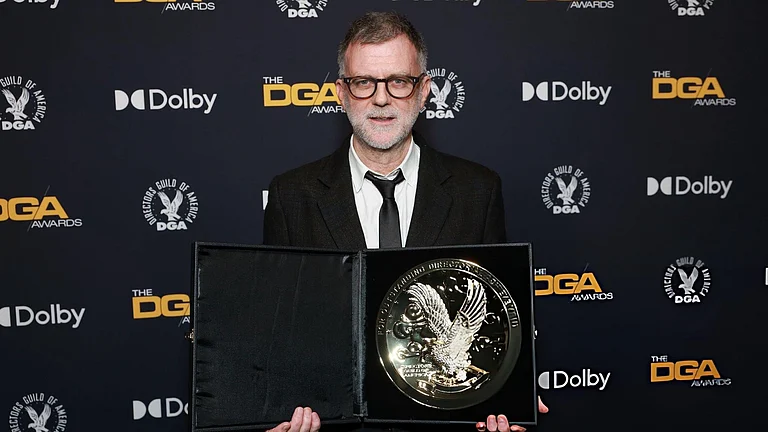In the package Katju and Mishra carried was the biggest intelligence coup that India’s external intelligence agency, RAW, had ever managed to gather courtesy its technical wing—a telephone conversation between then Pakistan army chief, General Pervez Musharraf, and his chief of staff Lieutenant General Mohammed Aziz. The conversation proved beyond doubt that the Pakistani army too was actively involved in the Kargil incursions. Till then, it was being described by Islamabad as an operation being conducted independently by militants.
But was the decision to dispatch the tapes to Nawaz Sharif a wise move? Now, for the first time an insider from RAW says that it was not. Major General V.K. Singh, who served in RAW in its technical wing between 2000 and 2004, told Outlook: "You never ever reveal your source in the intelligence game. Once that was done when the tapes were handed over, the source dried up and we did not get any intelligence from this sector for the next two years. So were the brownie points that we earned from sharing the tapes with the world really worth it? In my opinion, this was a violation of the basic principles of intelligence gathering."
After the tapes were publicised, the Pakistanis came to know the technology being employed by Indians to tap into their internal communication and helped them get a fair idea of India’s secret listening posts and their capabilities. Says Singh: "The leakage was quickly plugged by the Pakistanis, leading to a virtual drought of quality intelligence for RAW."
This clever-by-half move by the NDA and other revelations are contained in Singh’s forthcoming book India’s External Intelligence: Secrets of Research and Analysis Wing. Singh is the first insider to throw light on the agency’s inner working. The book addresses three issues that has plagued the agency for years—lack of leadership, no accountability and political mishandling.
He reveals that even when it came to installing a secret communication network for the prime minister, RAW’s top bosses didn’t do the necessary homework. In May 2001, the Special Protection Group (SPG), which looks after the prime minister’s security, decided to procure a sophisticated communication system at an estimated cost of Rs 26.2 crore. RAW was asked to evaluate and identify the best system available. While the American firm Motorola emerged as the frontrunner, no mandatory tests were carried out for its "crack resistivity" (ability to withstand hacking) by the DRDO’s systems analysis group (SAG). "All communication systems with encryption systems must be tested by the SAG to ensure that people cannot hack into the system easily," Singh told Outlook.
Also, as a rule, security and intelligence agencies always use indigenous crypto systems. "But in this case," writes Singh, "it wasdeveloped by an American firm" and "it was quite likely that foreign intelligence agencies would have access to the algorithm." Any foreign intelligence agency "such as the CIA or maybe even the ISI would be able to eavesdrop on the network and know the exact details of the movements of the prime minister and the measures being taken to protect him," he says. While Singh’s comments were accepted and the order postponed, it was given to Motorola without the mandatory SAG tests soon after his retirement from RAW.
The defection of RabinderSingh, a joint secretary with RAW looking after the Southeast Asia desk, shocked the agency. Maj Gen Singh now writes, "...lack of leadership at the top was responsible for the major fiasco." The activities of Rabinder Singh, a suspectedCIA mole who later defected to the US, had already been brought to the notice of his superiors. A middle-ranking officer, S. Chandrashekhar, alerted special secretary Amar Bhushan. Rabinder was put under surveillance.
So how did Rabinder defect with such ease? The answers perhaps lie in the lax manner in which Bhushan handled the sensitive case. Bhushan, alleges Singh, was too busy appropriating positions for himself to attend to the Rabinder matter. "He (Bhushan) changed his designation from additional secretary (personnel) to special secretary without the approval of the department of personnel and training." Soon Bhushan was also appointed as the head of Aviation Research Centre (ARC), an autonomous outfit under RAW.
Singh feels that the then RAW chief, C.D. Sahay, "did not have the gumption to tell Amar Bhushan to stay out of RAW" and concentrate on his work in the ARC. Instead, Bhushan was allowed to induct N.K Sharma from the central paramilitary forces who had no training in counter- intelligence into RAW to keep a watch on Rabinder. As Sharma blundered along, Rabinder flew out to the US via Kathmandu. He left with top-secret RAW documents, including assessments on Southeast Asia countries as well as information that he had accessed from the reports of other officers. Ironically, Sharma was "rewarded" with a plum foreign posting.
While the Rabinder Singh episode is a stark example of the rot that had set in, Singh goes on to record other examples of professional misconduct. He refers to an additional secretary, who when overlooked for promotion to the rank of special secretary, did not attend office for months. But no disciplinary action was taken against him. "This is unheard of. In the army, anyone away without leave for more than 30 days is declared a deserter," says Singh. This revelation is likely to embarrass a senior serving RAW official. Then again, Singh writes about how a senior officer spent lakhs having a logo designed for the agency. It could never be used for security reasons. Equally shocking is the case of an officer who funded his daughter’s education from the secret funds given to RAW. He had listed his daughter as an informant and paid her for ‘services’ rendered.
Singh feels the lack of accountability and financial auditing is detrimental to RAW’s efficiency. "Coming under the ministry of home affairs, the Intelligence Bureau has a modicum of ministerial control," he writes. But "RAW does not even have this fig leaf of restraint to curb its activities." He says it is strange that our intelligence agencies are exempt from accountability which even the armed forces are subservient to. "If war is too serious a business to be left to generals, should not intelligence be considered too serious a business to be left to spies?" asks Singh.


























